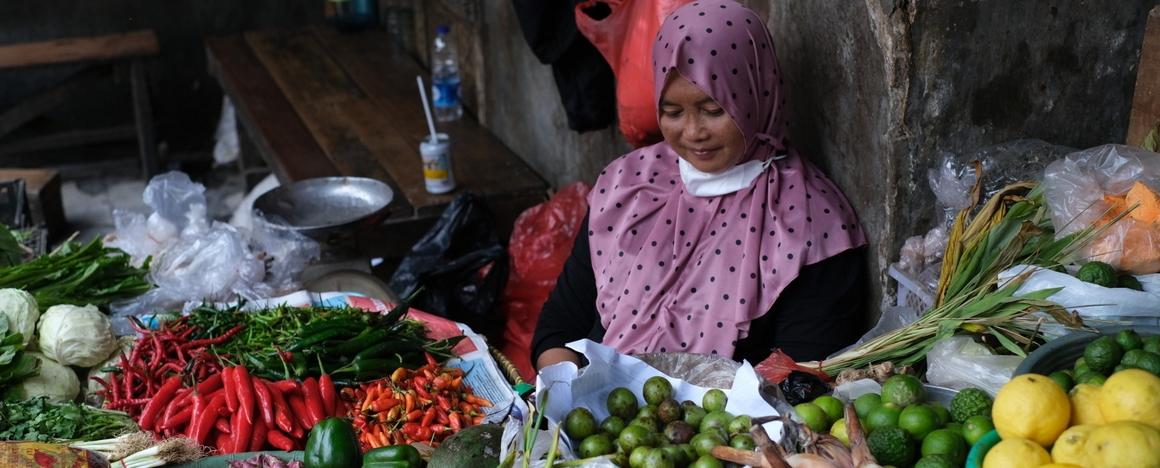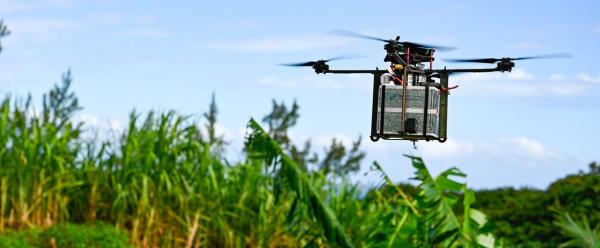Results & impact 10 October 2025
- Home
- Press area
- Press releases
- The diversity of urban food systems in the South
Supporting the diversity of urban food systems in the global South

A fruit and vegetable seller on a food market in Jakarta, Indonesia © A. Rival, CIRAD
“Food provisioning in the cities of the global South is far more organized and efficient than is often portrayed. There is a tendency to make things out to be worse than they really are, especially because of increasing urbanization. Yet there is very little research that truly examines urban food systems in the global South. When we really explore the subject, we observe on the contrary very high adaptability and great potential for innovation”.
Paule Moustier is a specialist in urban food provisioning at CIRAD and lead author of a new article in Global Food Security, focusing on the diversity of food systems in the cities of the global South. She believes this diversity is the key to their resilience.
“The cities of the global South face serious constraints, primarily due to logistical issues or to the low purchasing power of consumers”, says the researcher. “To address these constraints, numerous public policies support centralist, capital intensive supply models, particularly via supermarkets. We believe this is a mistake: it is the complementarity of various supply systems that ensures the resilience of the system as a whole”.
Building on small companies and producers’ organizations
In the article, the scientists describe the six types of food systems existing in urban areas in the global South. These six models include supermarkets, e-commerce, small and medium-sized enterprises, as well as chains of producers, collectors, wholesalers, processors and retailers selling products on markets or in the street.
Street or market sales and small and medium-sized enterprises are sometimes described as “informal” systems. They are nevertheless taxed and organized. Despite their high degree of competitiveness, especially in terms of prices, these systems suffer from a glaring lack of political investment.
The study recommends that public actors should reconsider their position in terms of this lack of support: instead of focusing public action on one or two types of “formal” systems, such as supermarkets or e-commerce, investments need to be distributed more effectively in order to ensure access to high-quality, low-cost products for all.
“This implies renovating markets, for example, but these renovations must be designed to meet the requirements of vendors and consumers”, says Paule Moustier. “The new infrastructures are typically costly and too distant from urban centres. The rent on these new markets stalls is too expensive for vendors and the transport costs discourage buyers. There is a need for lower cost, less ambitious renovations that are more suited to the constraints of operators”.
In the article, the scientists develop six major guidelines for new, more appropriate public policies: infrastructure, regulations, resources for small and medium-sized enterprises, education, institutional capacities and research.
Reference
Paule Moustier, Michelle Holdsworth, Dao The Anh, Pape Abdoulaye Seck, Henk Renting, Patrick Caron, Nicolas Bricas. 2023. The diverse and complementary components of urban food systems in the global South: Characterization and policy implications. Global Food Security



























